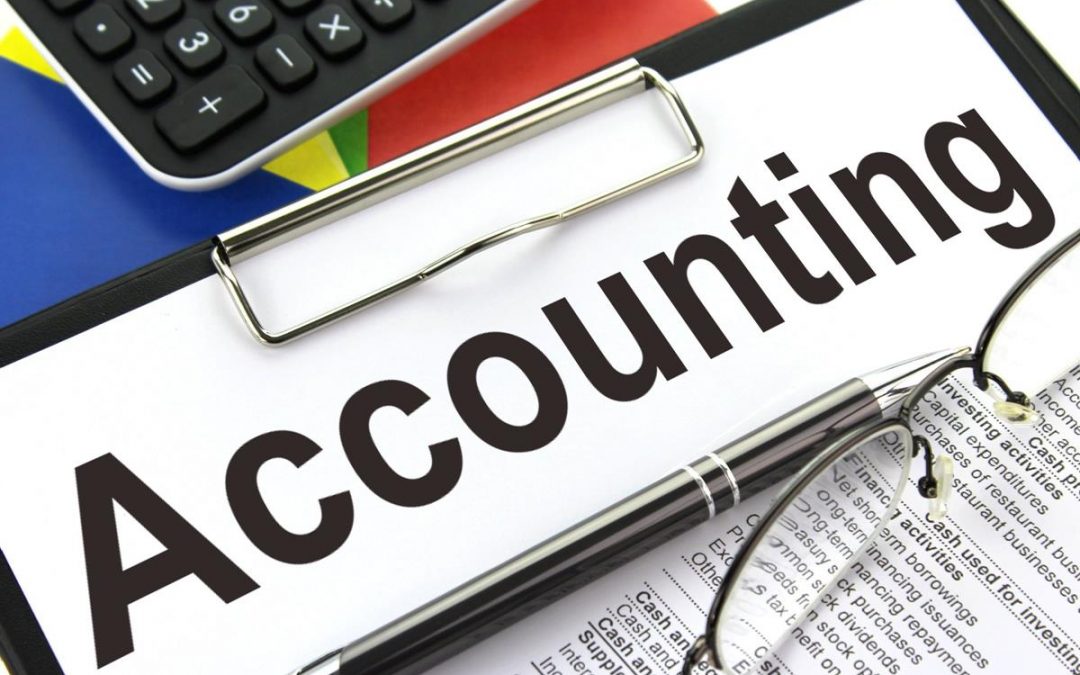
Why Your Business Should use Cloud Accounting Software
Cloud computing technology is one of the key business automations that are trending across businesses and companies. The utilization of cloud computing technology allows businesses to reap various benefits and competitive advantages. There has been an increasing trend...

Brisk Business: Can You Start a Business in Just a few Hours?
Starting your own business from scratch is a long involved process. It includes developing a solid business plan, writing proposals, getting funding, and finding the right location in addition to dozens of other considerations. However, once you have these resources...

How To Utilize Excel For Accounting
he power of the spreadsheet sometimes escapes small business owners. It is understandable. Modern accounting can be perplexing even for people with unusually high intelligence and drive to succeed. The principles of basic accounting, however, are not all that...

Blackline: What Is It?
BlackLine provides a host of services that help businesses maintain better control over financial actions. Additionally, the BlackLine applications streamline activities through enhanced automation. While services like accounts payable, fixed assets, and general...

Top 5 Major Benefits that the Big Four Offer
If you are an accountant you may be wondering what the benefits of working for the Big Four are. There are many reasons to consider working for either Deloitte, EY, KPMG, or PwC. Here is a list of the top five as cited by staff who actually work there Time Off Most...

What is Double-Entry Accounting
One of the key cultural advancements that made modern economies possible was the invention of double-entry accounting in the fifteenth century. The very concept of "owner equity" being reduced to a mathematical equation was a major advance that brought about the...

Consider a Career in Accounting
If you're like millions of people in the U.S., you're unhappy with your job. You might also be at a loss as to where to go next. Here are a few reasons you should consider a career change as an accountant. The Pay is Excellent When looking for a career change, one of...

A Few Basic Business Practices
If you're considering taking the path of entrepreneurship, you've probably developed a business plan and started to look into funding. That's not everything, though. You'll have to wear many hats and that means being well-versed in these basic practices. Accounting...

How To Plan For Your Retirement
You’ve seen the articles warning us that a shockingly low percentage of Americans have enough money to cover a $400 emergency, or the reports telling us that most millennial-aged Americans are drowning in student loan debt. One look at the news, and you’ll come away...

How To Get Better Money Habits
Money certainly makes the world go ‘round, and billions of people across the planet work hard and long for it. Unfortunately, many cannot get a firm grip on their finances. How can one escape the vicious cycle of habits that lead to financial stress? Myriads of...
The Official Blog of Kewho Min

Why Your Business Should use Cloud Accounting Software
Cloud computing technology is one of the key business automations that are trending across businesses and companies. The utilization of cloud computing technology allows businesses to reap various benefits and competitive advantages. There has been an increasing trend of businesses preferring to use cloud accounting software in their operations as they pose numerous benefits.
Being able to work remotely
Cloud accounting enables businesses and their accountants to work from anywhere in the world. The storage of accounting records across the web ensures that the businesses can remotely access their financial information whenever the need arises.
Convenient sharing of information
In situations where a business needs to share its financial records with key stakeholders such as shareholders, managers, investors, and advisors, cloud accounting comes in handy. In this regard, the business can make it possible for stakeholders to gain access to internal business records. It is also possible for the business to remotely update such records at the click of a button.
Access to all cloud computing benefits
Cloud accounting gives a business the chance to benefit from additional cloud computing benefits. Firstly, the business will not be vulnerable to common risks such as data theft and loss of information through computer crashes. Secondly, the business will have access to enhanced data security measures such as data encryption and data backup to maintain the integrity of the financial records.
Customized reporting and financial analytics
Cloud accounting software can be customized to give businesses an opportunity to make various financial disclosures and computations easily. Businesses using cloud accounting software have access to powerful dashboards that come with customized features that can help visualize various key performance metrics and indicators. This makes the accountants’ work easier and seamless.
Integration of machine learning
Cloud accounting platforms allow businesses to reap additional benefits such as access to auto-allocations of transactions into a business template. For instance, as financial transactions occur, the accounting software can remotely and automatically allocate the transactions to the correct books while computing tens of other calculations to ensure a real-time update of the business’s financial records. This convenience makes it possible for businesses to make accurate financial decisions at any time.

Brisk Business: Can You Start a Business in Just a few Hours?
Spend as little time as possible doing this, because dwelling on it can hold up your entire project. You can always change the name of your business later if you come up with a better name. To get started, just pick something simple and go with it.
This is something you will have to do before you can hire employees or build a partnership. However, you may want to do this even if you don’t plan on hiring employees right away. By obtaining an EIN, you can keep your personal tax number (social security number) private.
Depending on your situation, you may want to operate your business under a pseudonym. Registering a trade name can often be done easily and getting approval is fairly easy.
Both city and county governments require business owners to be licensed. Obtaining your license is as simple as filling out a form, which takes just minutes. While completing the application, be sure to use the EIN instead of your SSN when asked for your business’ tax identification number.
You may need to file a personal property tax form on items used for your business or you may need to get a home occupancy license if you plan to operate your business out of your home. You may be able to find out what other permits you will need by consulting local and county offices or by visiting government websites.
Finally, you will want to divide your business financials from your personal accounts. This means opening a bank account to be strictly used for your business and starting a simple accounting spreadsheet. You may upgrade these services in the future, but set them up as simply as possible to start.

How To Utilize Excel For Accounting
he power of the spreadsheet sometimes escapes small business owners. It is understandable. Modern accounting can be perplexing even for people with unusually high intelligence and drive to succeed. The principles of basic accounting, however, are not all that difficult to understand provided enough time is taken to practice the art of getting all the right numbers into all the right accounts. Understanding which accounts do what also helps quite a bit.
While Excel and other spreadsheet software can’t help with this kind of knowledge directly, it can perform many of the tasks required for double-entry accounting, for example, if it is set up properly and every transaction is recorded in the right place. If you plan to use spreadsheet software for your accounts, here are some things to consider.
Design
The key thing to remember is office programs like Excel were designed to support functions like preparing balance sheets and other necessary financial documents. There is a high likelihood you will find both templates and working documents that help you perform all the basics of small business accounting without having to re-invent the wheel. Start by looking for tutorials, as they will often have a long list of resources available to anyone with compatible versions of office software like Excel.
Functions vs. Scripting
All spreadsheets have both basic and advanced formula functions. These are the automatic arithmetic and calculation shorthand features most people who have used spreadsheets are familiar with. What many people likely haven’t used as much are the scripting languages built in to spreadsheets like Excel.
A scripting language allows a developer to embed business logic into their documents, allowing the calculation and display engines to be updated based on arbitrary conditions outside the document itself. This is a key area of knowledge for anyone interested in budgeting in particular, as it allows developers to establish thresholds and trigger logic based on them.
Built-In Facilities
Excel in particular ships with a wide variety of standardized document types, including cash-flow, profit and loss and various kinds of budgets from personal to business and many types in between. These work alongside the basic charting functions which allow a rudimentary type of reporting based on both raw data and calculated data on each document type.
A comprehensive reference would be more than a little daunting, even for an advanced user, but it is quite possible for a beginner in Excel and a novice accountant to be up to speed on the software quite rapidly, and then work methodically to make progress from there.

Blackline: What Is It?
The application has already generated plenty attention from business owners with an interest in the services provided. One reason may be the cloud solution that BlackLine provides, currently available in more than a hundred countries. This means data can be addressed by any subsidiary in almost any country and all that’s needed is a device and an internet connection. For this reason, companies with a worldwide reach and multiple subsidiaries can reap the most benefits from using BlackLine.

Top 5 Major Benefits that the Big Four Offer
If you are an accountant you may be wondering what the benefits of working for the Big Four are. There are many reasons to consider working for either Deloitte, EY, KPMG, or PwC. Here is a list of the top five as cited by staff who actually work there
Time Off
Most employees who work for one of the Big Four work a lot of hours and this is recognized and appreciated by the management. In order to keep the staff from burnout, especially during the busy tax season, an average of five weeks fo vacation time is given to accountants to keep them well rested. This is a huge perk and is well above the national average of vacation time given to entry-level corporate workers.
Remote Work Opportunities
Working remotely is coming into more prominence in the 21st century and the Big Four are shifting to meet this trend. They offer flexible hours in which their accountants can work from home in order to meet their obligations. This is appreciated greatly by the staff, especially by those who have previous family commitments.
Casual Dress Policy
Not having to wear a suit and tie every day is an important perk for those accountants working for the Big Four. The management emphasizes that they want people to be comfortable when they are putting in their long day at work. Having more relaxed standards of dress helps ease the stress of accountants for these firms.
401(k) Match
When saving for retirement all accountants know the benefits of compound interest. It doesn’t take a math whiz to realize that when the company is going to give you free money to match all of your contributions to your retirement account then you can reach your retirement goals a lot faster. This is a true benefit that helps the employees of Big Four firms to build real wealth that they will depend on for a lifetime.
Maternity and Paternity Leave
Having children is a huge milestone in your life and Big Four firms understand the need for bonding and family time that comes when there is a new addition to the family. They offer some of the most generous maternity and paternity leave plans in the country.
With these five benefits, working for a Big Four company is an enticing way to increase your benefits and career satisfaction at the same time.

What is Double-Entry Accounting
One of the key cultural advancements that made modern economies possible was the invention of double-entry accounting in the fifteenth century. The very concept of “owner equity” being reduced to a mathematical equation was a major advance that brought about the corporation, the idea of a shareholder and the relationship between owner’s equity and a company’s assets.
As important as this mathematical advancement was, it is a subject that few people outside the accounting profession understand. Given the centrality of money, business and ownership in a society and economy dominated by private enterprise and the public markets, the language of business expressed in double entry accounting is not only necessary, it is crucial.
The Equation
Double entry accounting boils down to one equation and one rule. The equation is assets = liabilities + owner’s equity. The rule is both sides of the equation must balance at all times. This is accomplished through a system of debits and credits.
A Ledger Entry
The process is called “double entry” because every transaction must be “entered” in at least two accounts. One is a debit and the other is a credit. By combining these two entries, the central equation is balanced along with the ledger itself. When the equation is in balance, it means all the funds transacted have been accounted for. It is not possible to hide entries or tamper with the ledger, as it would cause the central equation to be out of balance, meaning the books would not be in order.
Accounts
The locations in which entries are made are called “accounts,” like assets, cash, expenses and so on. When a transaction takes place, an entry of either a debit or credit is made in at least two accounts to make certain the equation is balanced. For example, collecting $1.00 in sales revenue would debit the “cash” account for $1.00 and credit the “revenue” account for the same amount.
Accounting is a lot like any skill. It requires basic knowledge and considerable practice to understand well. There are a lot of details involved in keeping the books for even a modest enterprise, which is why the accounting profession is unlikely to fade away any time soon. Everyone should take at least a basic class in accounting, as it is a skill that can be used on an almost daily basis.

Consider a Career in Accounting
If you’re like millions of people in the U.S., you’re unhappy with your job. You might also be at a loss as to where to go next. Here are a few reasons you should consider a career change as an accountant.
The Pay is Excellent
When looking for a career change, one of the biggest concerns is probably the salary. You will want to know the starting salary and the earning potential as you gain more experience. Straight out of college, most entry level accountants earn around $50,000 annually. After just five years on the job, you can be earning a six figure salary. That’s in addition to the benefits package that many employers add to sweeten the pot.
Will You Be Able to Get a Job?
Along with salary expectations, this is another big concern. While many jobs are being mechanized, accountants will always be in demand. Every business, new and established, needs people who can balance books and track expenses and inventories.
What Industry Can You Choose?
Suppose you’re looking for a way to break into filmmaking or you want to start your own fashion boutique. Whatever industry fascinates you also has a need for accountants. By learning about the financial side of the business, you’ll be training yourself to start your own business. In fact, many accountants eventually start their own businesses down the road.
Will You Enjoy the Work?
Accounting isn’t for everyone. There are long hours at times and it requires spending your days sitting at a desk. If this sounds unappealing to you, maybe this isn’t the right career change. However, if you enjoy working with numbers and don’t mind a stationary position, accounting may be just the change you need.
The Educational Options
Of course, the longer you go to school, the higher your earning potential. That said, you can pursue your CPA certification in grad school or you can get a Master of Accounting degree in just one year. There are also more traditional degree programs. You can attend a brick and mortar college or obtain your degree online. Just as there are many career paths for accountants, there are many ways to get yourself qualified to do the work. It really depends on your other things obligations and how eager you are to start your new career.

A Few Basic Business Practices
If you’re considering taking the path of entrepreneurship, you’ve probably developed a business plan and started to look into funding. That’s not everything, though. You’ll have to wear many hats and that means being well-versed in these basic practices.
Accounting
This isn’t something you can just throw together at the last minute. You will need to know how to balance your books and generate reports on a daily basis. You’ll also have to know how tax laws will affect your business and what documents you’ll need to regularly submit to the IRS. The better you balance your books, the easier it will be to manage your business.
Marketing
This is vital to the success of your business and it embodies everything from maintaining a website to paying for advertising. You’ll also need to maintain a presence on the big social media sites, so you can build your brand. In today’s digital landscape, every business is a part of the global marketplace, so you’ll want to know your way around.
Sales
Connected to marketing, you’ll have to be able to encourage sales growth. In today’s market, that involves building long-lasting relationships with your customers, as well as reaching new consumers. Instead of the hard sell of days gone by, consumers want to know what your product can do for them. Be prepared to answer some tough questions.
Customer Service
There’s been a greater demand for quality customer service in recent years and you’ll want to devote serious time to that. The advent of online customer reviews has put business under a harsh light and the online community pays attention. This is why it’s important to address concerns and bad reviews, but without losing your own cool. Communicating publicly and attempting to address complaints without letting customers walk over you is a challenge, but, done correctly, it can work for your business.
Eventually, you’ll want to hire staff that can take on some of these duties for you. However, if you’re just launching your business, you’ll want to do as much of this for yourself as you can. Taking on these tasks personally can benefit you in the long run, because it will give you a view of these duties from the ground. This can help you identify and address problems early on and you’ll be a better entrepreneur for it.

How To Plan For Your Retirement
You’ve seen the articles warning us that a shockingly low percentage of Americans have enough money to cover a $400 emergency, or the reports telling us that most millennial-aged Americans are drowning in student loan debt. One look at the news, and you’ll come away feeling like the financial situation of most Americans is extremely bleak. The confidence older American workers have in their finances isn’t very high, either, with reports indicating that just 18% of workers in the United States feel like they’ve got enough cash set aside for retirement.
Similarly, other articles also suggest that 30% of middle-aged United States-based workers suffer from emotional or physical health problems related to feeling like they’ve got insufficient retirement savings.
Although saving for retirement seems complicated, learning how to build a rock-solid financial foundation for your post-work years isn’t actually that difficult. Asking yourself the following questions is a great way to ensure that you’ll have enough money when you retire.
How Much Money Are You Investing?
Most financial experts tell us that you should aim for saving 10% of your post-tax income. Unfortunately, due to inflation and a rising cost of living, saving and investing 5% to 10% of your post income likely won’t be enough to give you a comfortable life in retirement.
We recommend saving and investing between 15% and 20% of your income. This higher rate of saving and investing will help those who did not begin saving and investing until later in life.
What Are You Investing In?
Financial experts argue that what you’re investing in is just as important as the amount of money you’re investing. If, for example, you invest most of your money in penny stocks or risky start-ups, there’s a chance you could be dead broke by the time you reach retirement. On the other hand, it’s important that your investments aren’t so conservative that the dividends are not keeping up with inflation.
Instead, find investment opportunities that offer a good middle-ground. Look for stocks, index funds, and real estate opportunities that offer a nice return without too much risk.
What Are Your Investment Costs?
Although some investors don’t think about it, the fees you pay when you are investing can have a significant effect on your net worth when you reach retirement age. This is especially true if you’re being hit with exorbitant fees over a 30 or 40 year period.
Asking yourself these three questions is a great way to start planning for a better financial future immediately.

How To Get Better Money Habits
Money certainly makes the world go ‘round, and billions of people across the planet work hard and long for it. Unfortunately, many cannot get a firm grip on their finances. How can one escape the vicious cycle of habits that lead to financial stress?
Myriads of opportunities abound for spending every dollar earned. Every financial decision includes a choice to forgo other options in favor of how the money will be used. Discovering the inner forces that drive financial decisions is crucial in replacing unproductive money habits with habits that will bring relief and freedom.
Uncovering Core Attitudes on Money
Before one can effectively change undesirable behaviors, one needs to understand how the bad habits were formed. Upbringing and culture play an integral role in shaping one’s attitude toward money. Parents and other close adults provide examples (mostly inadvertently) of handling finances. Cultural cues from entertainment and marketing mediums also influence money attitudes at an acutely deep level in the psyche.
What Does Money Mean?
What is the purpose of money? What is the goal of earning it? What does one hope to accomplish with money? Reflecting on these questions and taking time to answer honestly will aid in revealing rooted attitudes that are influencing poor financial decisions. American economist Robert Schiller mused: “Finance is not merely about making money. It’s about achieving our deep goals and protecting the fruits of our labor. It’s about stewardship and, therefore, about achieving the good society.”
Cultivating a Plan
Benjamin Franklin warned: “Failing to plan is planning to fail.” Setting a definite course for finances is imperative for one’s welfare now and later. Procrastinating to plan is like driving to an unknown destination with no directions. With or without a plan, the ride of life continues. If it is apparent that the current direction is not desirable, the time to change is now – why stay on the wrong route? The answers to what one hopes to accomplish with money will aid in formulating short-term and long-term financial goals. Now, one has a clearer motivation for earning and controlling money.
Budgeting to Take Control
Budgeting allows one to see exactly how money is flowing in and out. It can be as simple as writing down income and expenditures or using an app. By keeping a sharp eye on how one’s money is moving, staying true to one’s financial goals becomes more doable and desirable.
Learning How Money Works
Financial success comes when one’s money – not just the individual — is working. Seek out reliable financial information regarding saving and investing. Discover how to master money and use it as a tool to achieve any desired goals.
